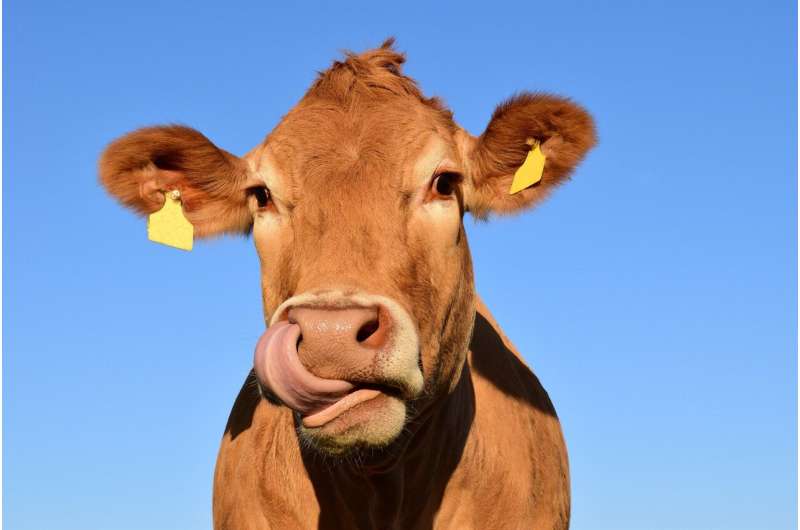Researchers control cattle microbiomes to reduce methane and greenhouse gases

Ben-Gurion University of the Negev (BGU) researchers have learned to control the microbiome of cattle for the first time which could inhibit their methane production, and therefore reduce a major source of greenhouse gasses.
The findings from Prof. Itzhak Mizrahi's findings were published recently in Nature Communications. Prof. Mizrahi is a member of the Department of Life Sciences in the Faculty of Natural Sciences and the National Institute for Biotechnology in the Negev (NIBN).
The animal microbiome is a scientifically unexplored area. It protects against germs, breaks down food to release energy, and produces vitamins and exerts great control over many aspects of animal and human physical systems. Microbes are introduced at birth and produce a unique microbiome that evolves over time.
Mizrahi and his group have been conducting a three-year experiment with 50 cows divided into two groups. One group gave birth naturally, and the other through cesarean section. That difference was enough to change microbiome development and composition microbiome of the cows from each group.
This finding enabled Mizrahi's team together with Prof. Eran Halperin's group at UCLA to develop an algorithm that predicts the microbiome development and how it will evolve over time based on its present composition.
"Now that we know we can influence the microbiome development, we can use this knowledge to modulate microbiome composition to lower the environmental impact of methane from cows by guiding them to our desired outcomes," Mizrahi says.
Prof. Mizrahi has investigated the microbiome of cows, fish and other species to address world issues shaped by climate change. Reducing methane emissions from cows will reduce global warming. Engineering healthier fish, which is another of Mizrahi's projects, is especially important as the oceans empty of fish and aquaculture becomes the major source of seafood.
More information: Ori Furman et al, Stochasticity constrained by deterministic effects of diet and age drive rumen microbiome assembly dynamics, Nature Communications (2020). DOI: 10.1038/s41467-020-15652-8
Journal information: Nature Communications



















